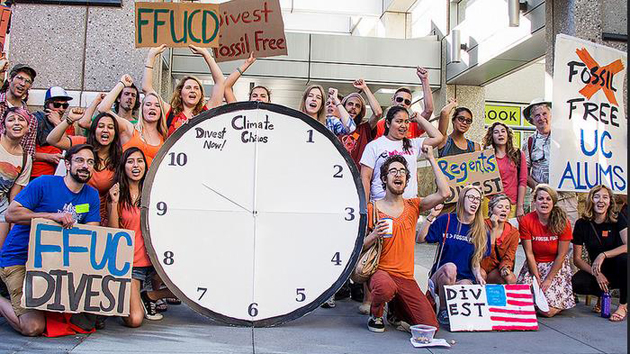
By Sam Smithies
UCLA Carbon Neutrality Ambassador
On May 19, 2020, the University of California became the largest educational system in the United States to divest from fossil fuels and shift toward renewable energy such as solar and wind power. Over a five year period, the UC Investments Committee achieved a fully fossil-fuel free portfolio, including the endowment, the pension and all working capital pools. Meanwhile, the UC Investments have exceeded their five-year goal of investing $1 billion dollars toward clean energy projects. These changes were motivated by the UC’s recognition of their environmental and social responsibilities, however, ultimately, the investment strategies respond to the financial risk of continuing to invest in fossil fuels.
The UC Investments’ ESG (environmental, social, and governance) policy, released in 2015, outlines the ways in which environmental and social trends and challenges can pose financial risks. Rather than a guiding value, sustainability is considered in risk assessment and due diligence.
While there was significant internal support, the UC’s divestment has been made possible by committed student and faculty advocates and the Fossil-Fuel Free UC campaign. Across the nation and the world, going fossil-fuel free has become a growing trend among universities and other large institutions. Unity College was the first school to have a fossil-fuel free portfolio in 2011. Since then, many other universities have reached this milestone or are working toward it. In the last 5 years, over 1000 global institutions, totaling nearly $8 trillion USD, have pledged to divest from fossil fuels.

The UC’s fossil fuel free portfolio sends a symbolic message and will have an indirect environmental impact, but sadly, it alone won’t make a big difference. The hope is that the UC’s policy furthers the nationwide movement of universities and other large institutions divesting from fossil fuels.
